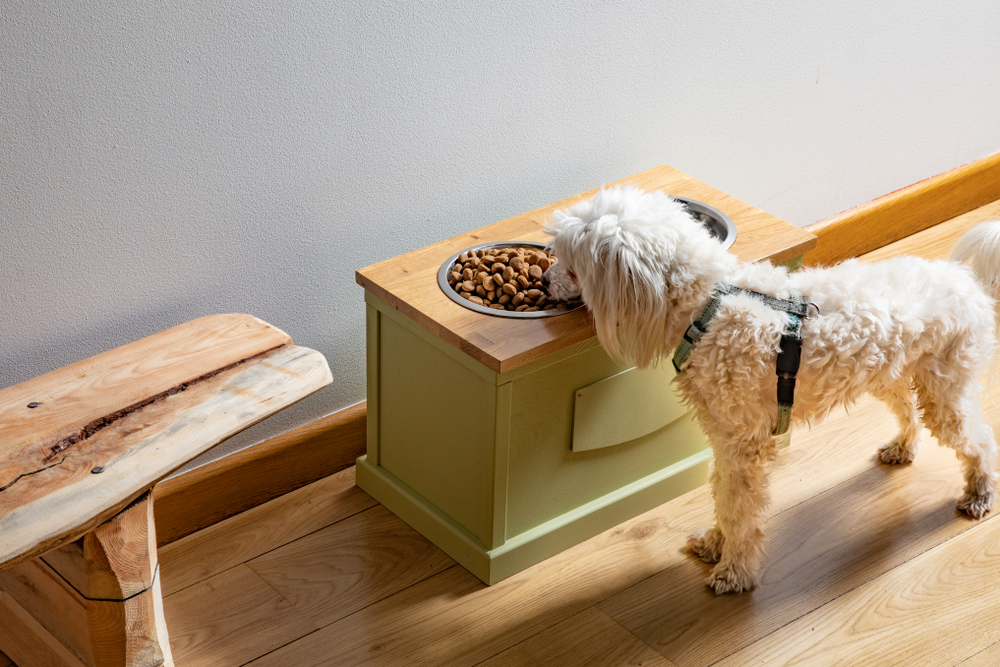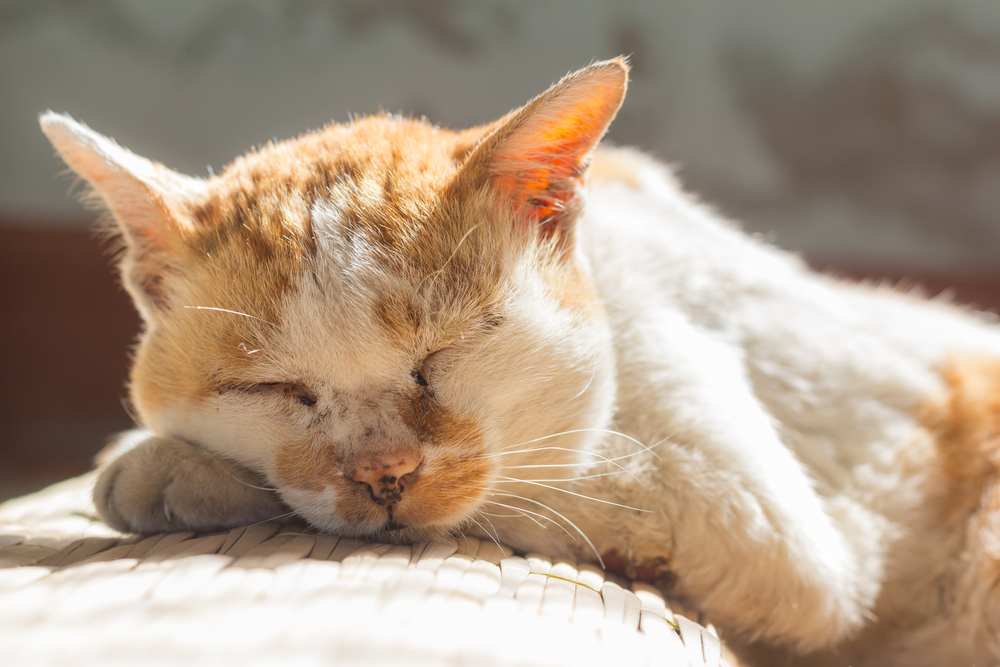Similar to elderly people, senior pets require additional care and support to ensure their needs are met. Unlike people, pets reach senior status at a much earlier age. Cats and small-breed dogs are considered seniors at about 10 years of age, medium-breed dogs at about 8 to 9 years, large-breed dogs at 7 to 8 years, and giant breeds at 6 to 7 years. Our Peak City Veterinary Hospital team wants to ensure your senior pet receives the support they deserve, so we are providing senior pet care guidelines.
Amp up your senior pet’s wellness care
Senior pets are at increased risk for several age-related health issues, such as cataracts, diabetes, cancer, kidney disease, and arthritis. Most health complications are easier to treat and manage when detected early, and we recommend that your senior pet be evaluated by a veterinary professional at least every six months for appropriate screening tests. Here’s what to expect at your senior pet’s wellness visit:
- Physical examination — Performing a thorough physical examination helps our team detect conditions such as cataracts, dental disease, heart murmurs and arrhythmias, and abdominal masses.
- Blood work — Routine blood work, including a complete blood count and biochemistry profile, helps us catch issues such as anemia, infection, kidney and liver disease, electrolyte abnormalities, and diabetes.
- Thyroid panel — Thyroid conditions, such as canine hypothyroidism and feline hyperthyroidism, are common in senior pets, and we may recommend a thyroid panel.
- Urinalysis — We may also suggest a urine analysis to detect issues such as urinary infection, urinary calculi, diabetes, and kidney failure.
Senior pets must also remain current on their vaccines and parasite preventives, and their bi-annual wellness examination is the perfect time for our Peak City Veterinary Hospital team to address these important issues.
Keep your senior pet fit and svelte
The majority of U.S. pets are overweight or obese, and senior pets are no exception, especially since their metabolism tends to slow with age. You may think a few extra pounds won’t hurt your four-legged friend, but excess weight puts them at increased risk for many issues, including diabetes, hypertension, kidney disease, cancer, and arthritis. When you consider that their increased age elevates their risk for many health problems, you definitely don’t want to add to their problems. Tips to keep your pet at a healthy body weight include:
- Calculate their daily caloric requirements using their age, breed, weight, body condition score, activity level, and spay or neuter status, so you know exactly how much food they need per day.
- Properly allocate their meal portion by using a measuring cup or kitchen scale to ensure an accurate measurement. Consider that one or two extra morsels can represent significant calories for a cat or small-breed dog.
- Ensure your senior pet stays fit with adequate daily exercise. Choose an exercise type and level appropriate for their fitness level, such as a brisk neighborhood walk, a gentle game of fetch, and chasing a laser pointer dot.
Pay attention to your senior pet’s dental health
Poor dental health can negatively impact your senior pet’s quality of life and reduce their lifespan. Periodontal bacteria invade under the gumline, causing inflamed, painful gums, loose or missing teeth, and tooth root abscesses. In addition, the harmful pathogens can travel throughout your furry pal’s body and damage their heart, kidneys, and liver. Tips to keep your senior pet’s mouth happy and healthy include:
- Scheduling regular dental cleanings — A professional veterinary dental cleaning is the only way to remove damaging periodontal bacteria from under the gumline. Senior pets should be evaluated at least once a year to determine if they need a dental cleaning.
- Brushing your pet’s teeth — Plaque accumulates on your senior pet’s teeth between professional veterinary dental cleanings, and you should brush their teeth daily using veterinary-approved dental products.
- Providing dental chews — Dental treats approved by the Veterinary Oral Health Council can also benefit your senior pet’s dental health.
Keep your senior pet mentally engaged
Many senior pets are affected by cognitive dysfunction, a condition similar to Alzheimer’s disease in people, but you can slow disease progression and possibly reduce your pet’s risk by ensuring daily mental engagement. Tips to help keep your senior pet mentally sharp include:
- Teaching a new trick and practicing daily
- Rotating your senior pet’s toys to prevent boredom
- Feeding with a food-puzzle toy to keep meal times more exciting
- Playing hide and seek to mentally engage them while they exercise and use their nosework skills
- Taking different walking routes to experience new sights and sounds
- Placing a bird feeder outside their favorite window perch so they can enjoy the show
Monitor your senior pet for arthritis pain

Arthritis is another common condition in senior pets but often goes undiagnosed and untreated because pet owners don’t recognize the signs. Potential arthritis signs include stiffness, especially after resting, difficulty going up or down stairs, resting in odd or awkward positions, hesitancy when jumping on or off elevated surfaces, resting or hiding more, decreased interest in activities or interacting with people and other pets, and irritability. In addition to veterinary care, ways you can improve your arthritic senior pet’s quality of life by providing:
- Ramps — Place ramps or stairs near your senior pet’s favored elevated resting places, so they can easily access the area.
- Supportive bedding — Place several orthopedic beds throughout your home, so your senior pet always has access to a place where they can comfortably rest their achy joints.
- Skid proof surfaces — Place rugs on hardwood floors to provide traction and prevent slipping.
- Low-sided litter boxes — Arthritic cats often have difficulty navigating their litter box and can benefit from a low-sided box.
If your pet has reached senior status, contact our Peak City Veterinary Hospital team to schedule their bi-annual wellness care and ensure they do not need relief from the many possible conditions that go along with aging.









Leave A Comment